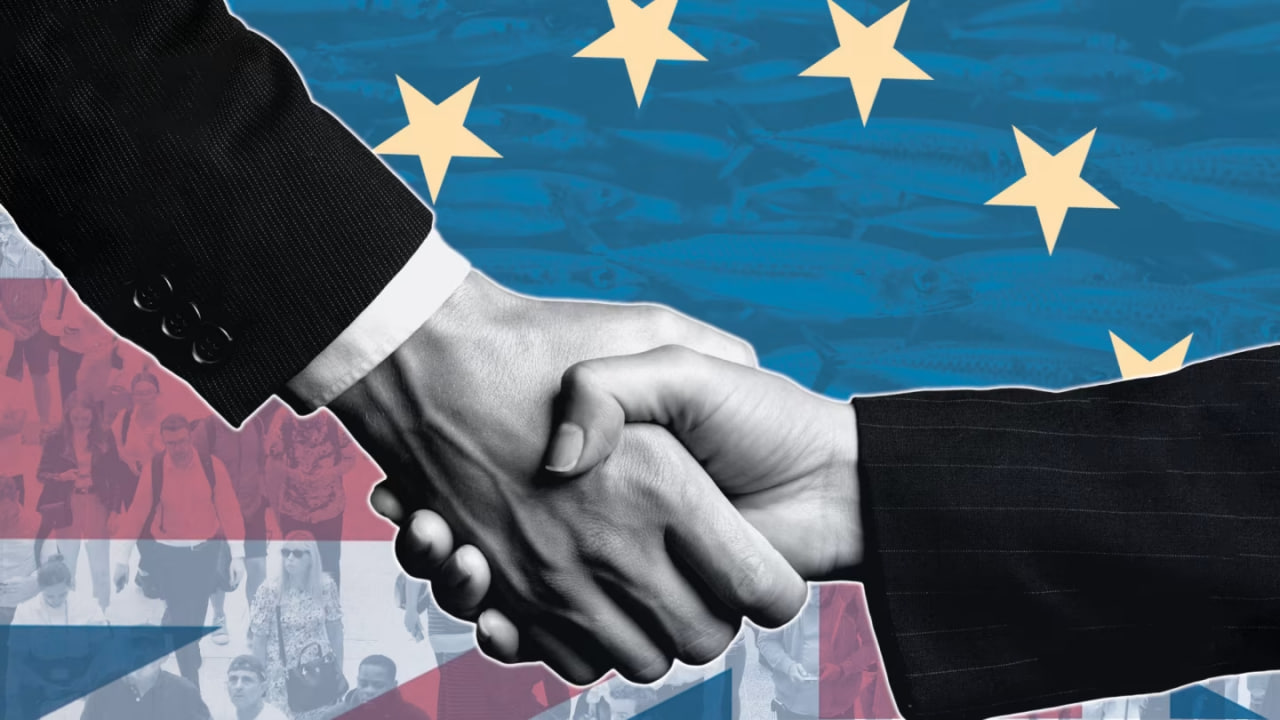London, May 20, 2025 – The UK Chancellor of the Exchequer, Rachel Reeves, has hailed a trio of trade agreements with the European Union, the United States, and India as a significant boost for the British economy. Speaking at a business leaders’ meeting, Reeves emphasized that these deals could position the UK as a global trading hub, delivering substantial economic growth. However, ongoing post-Brexit negotiations with Brussels remain stalled over contentious issues like fishing rights and a proposed youth mobility scheme, casting a shadow over the ambitious “Brexit reset” championed by Prime Minister Keir Starmer.
A New Chapter for UK Trade
The recently finalized UK-EU agreement, announced on May 19, 2025, marks the first major reset of relations since Britain’s exit from the EU in 2020. The deal, finalized after tense negotiations, is projected to add nearly £9 billion to the UK economy by 2040, according to government estimates. Key components include reduced border checks on food and agricultural products, allowing British exports like burgers and sausages to re-enter the EU market with less red tape. Additionally, linking the UK and EU Emissions Trading Systems will help avoid costly EU carbon taxes, saving British businesses an estimated £800 million annually.
Reeves also highlighted progress on trade deals with the US and India, with the latter announced just this week. These agreements aim to enhance export opportunities and strengthen economic ties, potentially offsetting some of the trade losses incurred since Brexit. The Chancellor noted that removing trade barriers could lead to a 2.2% uplift in GDP over the long term, a critical step toward Starmer’s goal of revitalizing economic growth.
Fishing and Youth Mobility: Sticking Points in Brussels
Despite these wins, the UK’s efforts to deepen ties with the EU have hit roadblocks, particularly over fishing rights and a proposed youth mobility scheme. The EU secured a 12-year extension for its fishing boats to access British waters until 2038, a deal that has sparked fierce criticism from UK fishing communities. Nigel Farage, leader of Reform UK, called the agreement a “surrender” that could “end the fishing industry,” while the Scottish Fishermen’s Federation labeled it a “horror show” for coastal communities.
In exchange, the EU agreed to ease trade frictions, including dropping routine border checks on sanitary and phytosanitary (SPS) goods, benefiting British food exporters. However, the deal requires the UK to align with EU rules in certain areas, prompting accusations from Conservative leader Kemi Badenoch that Britain is becoming a “rule-taker” from Brussels once again.
The youth mobility scheme, which would allow 18- to 30-year-olds from the UK and EU to live, work, and study across borders for a limited period, remains unresolved. The EU has pushed for this scheme, mirroring existing UK programs with countries like Australia and New Zealand, but concerns about immigration numbers have made it a political lightning rod. Starmer’s government insists there will be no return to free movement, and any scheme would be capped and time-limited. Public support for the initiative is strong, with a YouGov poll showing 66% of Britons in favor, but negotiations continue to drag on.
Political Tensions and Economic Stakes
The Brexit reset has not been without domestic controversy. Starmer, whose approval ratings have dipped to 23% according to recent YouGov polls, faces pressure from both pro-Brexit factions and pro-EU advocates. The Conservative Party and Reform UK have criticized the fishing concessions, while the Liberal Democrats urge bolder steps, such as joining a UK-EU customs union to further boost trade.
The National Institute for Economic and Social Research (NIESR) warns that failing to secure smoother trade relations could lead to a 2.7% drop in UK exports by 2027, costing the economy nearly £30 billion. Meanwhile, Brexit’s broader economic impact continues to weigh heavily, with UK exports to the EU down 21% and imports down 7% since 2020.
Looking Ahead
Starmer has framed the EU deal as a “win-win,” emphasizing benefits like easier travel for British holidaymakers through expanded e-gate access at EU airports and a £360 million investment in UK coastal communities to modernize the fishing industry. The agreement also includes a defense and security pact, enhancing cooperation on issues like migration and Ukraine’s defense, spurred by uncertainties over US policy under President Donald Trump.
As the UK navigates these complex negotiations, the balance between economic gains and political sensitivities remains delicate. Reeves stressed that the trade deals are “not easy” but are crucial for putting “more money in people’s pockets.” With annual UK-EU summits planned, the coming years will test whether Starmer’s vision for a reset can deliver lasting prosperity or if lingering Brexit divides will continue to complicate progress.
Sources of Information:
BBC News: UK-EU deal moves on from Brexit rows
CNBC: UK and EU agree deal hailing a ‘new chapter’ in post-Brexit relations
The Independent: Youth mobility, defence and £25bn in trade
GOV.UK: PM secures new agreement with EU to benefit British people
Sky News: UK and EU agree Brexit reset trade deal
Al Jazeera: UK, EU reach landmark deal
The Independent: UK poised to agree post-Brexit youth visa scheme
BBC News: The new UK-EU deal at a glance

